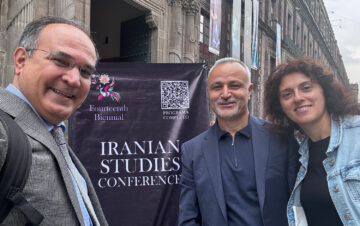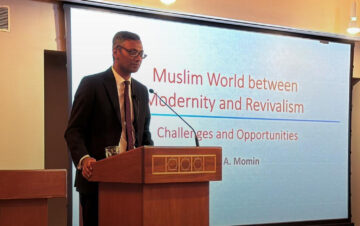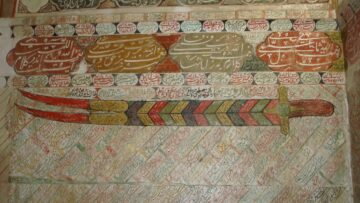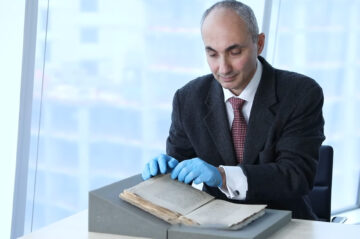The exhibition stems from a global educational project, managed by the FSTC, in association with the Al-Jameel Foundation. The project is also supported by the UK Home Office and the Foreign & Commonwealth Office. Working with international leading academics, this project engages with the public through educational media and interactive global exhibitions, in order to highlight the collective scientific and technological inheritance of humanity.
The Science Museum exhibition 1001 Inventions traces the story of a thousand years of science from the Muslim world; from the 7th century CE onwards, as well as celebrating the shared and universal scientific heritage of other cultures. The exhibition looks at the social, scientific and technical achievements that are credited to the Muslim world; showing how many modern inventions, spanning fields such as engineering, medicine and design, can trace their roots back to Muslim civilisations and their material cultures.
The reproduction of a 9th-century flying device is also shown, together with a six-metre-high replica of the iconic and visually striking ‘Elephant Clock’, designed by the celebrated mechanics scholar and polymath, Ibn al-Razaz al-Jazari (1136 – 1206 CE). A short film, starring Oscar-winning actor Ben Kingsley as al-Jazari, educates visitors through means of historical drama about science in Muslim civilisations.
After leaving the Science Museum, the exhibition will tour some of the world’s most respected museums and centres of learning over a period of four years, bringing the exhibition to a worldwide audience.
Further information is available via the following websites:
Science Museum, London






